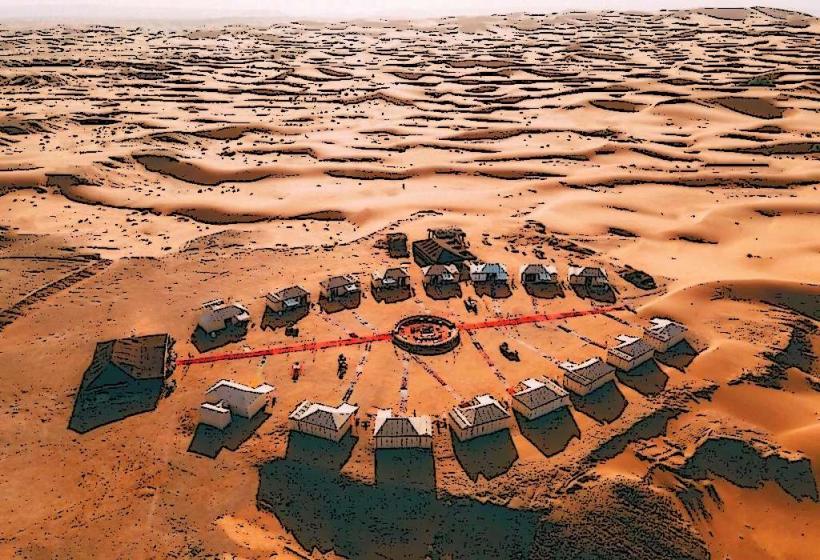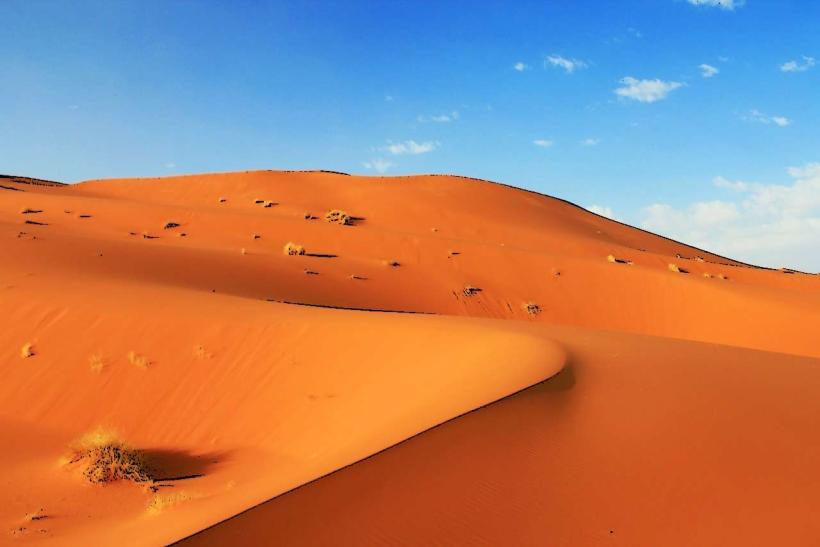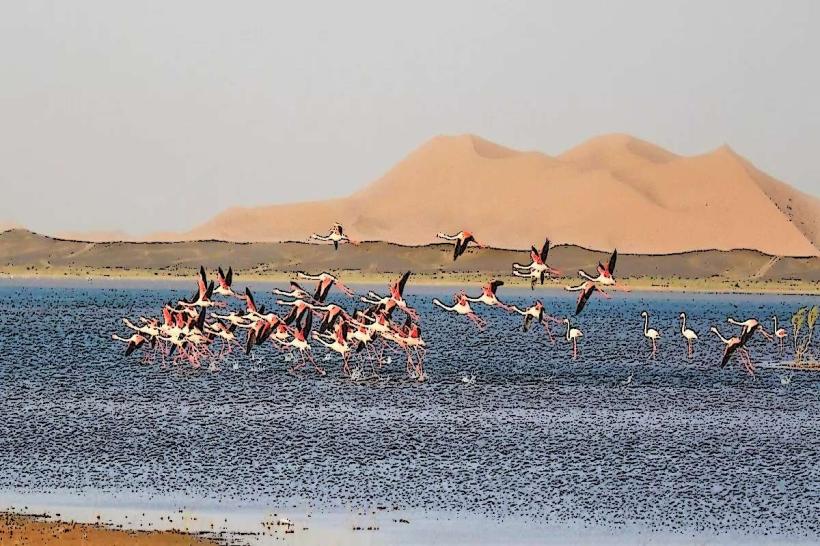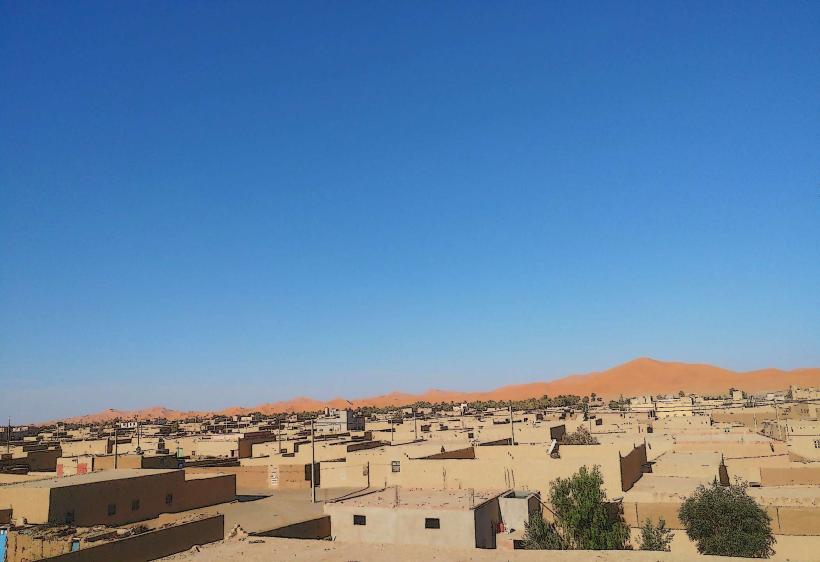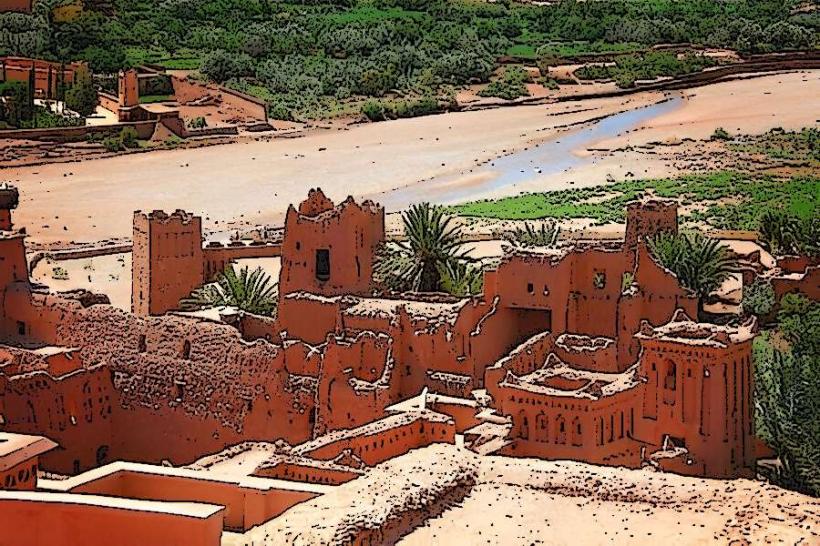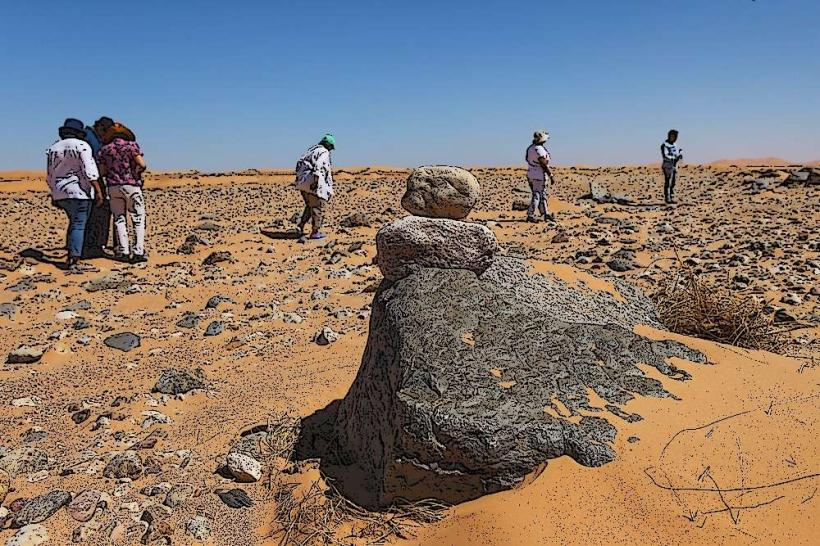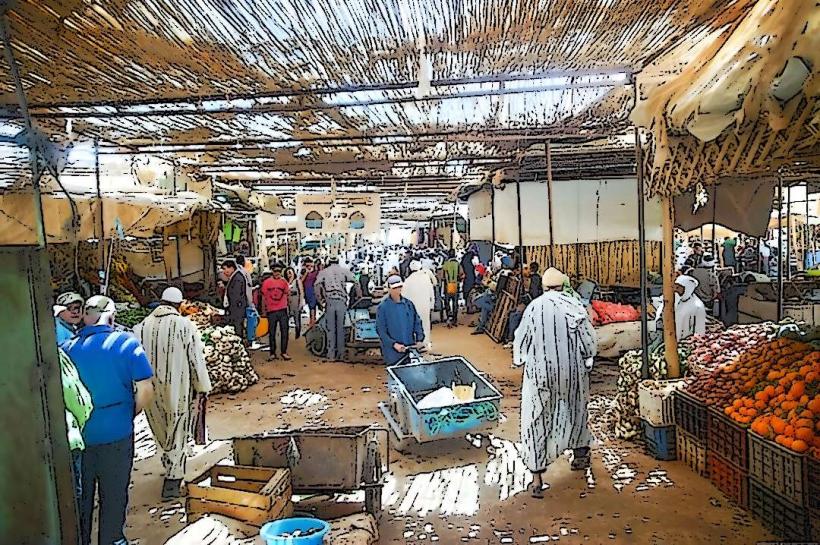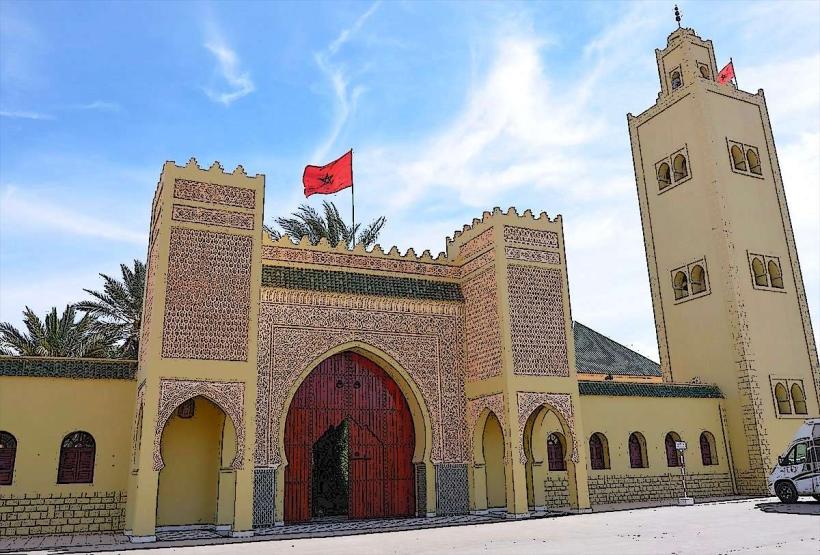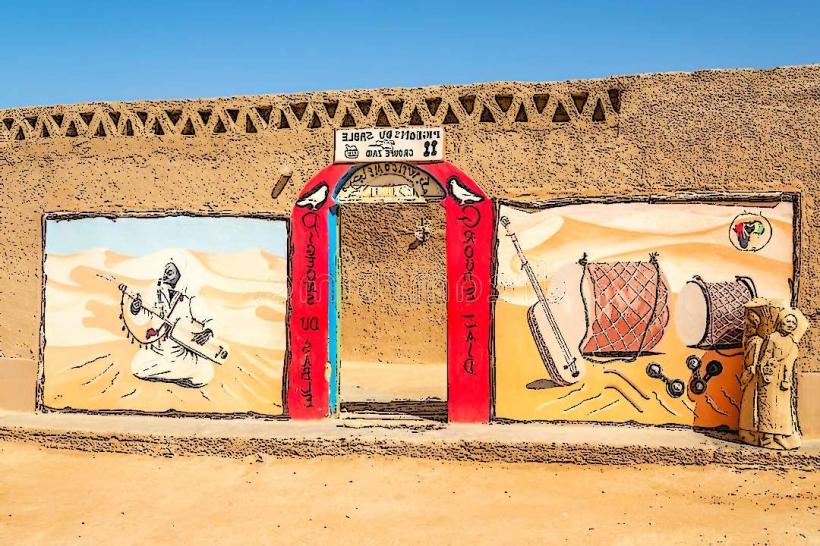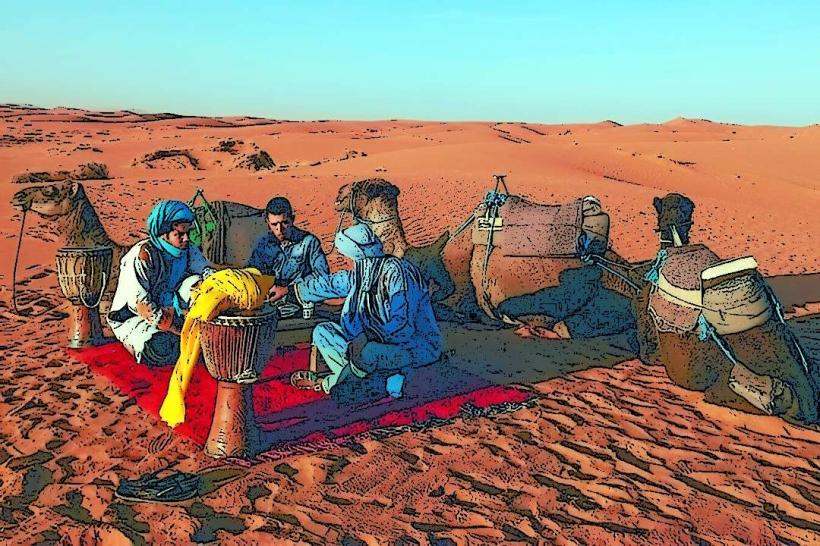Information
City: MerzougaCountry: Morocco
Continent: Africa
Merzouga, Morocco, Africa
Merzouga is a small desert village in southeastern Morocco, positioned on the edge of the Erg Chebbi dune sea. It serves as the primary logistical hub for Saharan tourism and scientific research into arid ecosystems.
Historical Timeline
Merzouga was historically a seasonal settlement for the Aït Atta and Aït Yafelman Berber tribes. Until the mid-20th century, it was a minor stop on the trans-Saharan trade routes. The village underwent formal sedentary development in the 1970s and 1980s as the Moroccan government encouraged permanent settlement. The primary event shaping its current urban form was the 1990s expansion of asphalt roads from Rissani, which transitioned the local economy from nomadic pastoralism to international desert tourism.
Demographics & Population
The estimated permanent population for 2026 is 2,500, though this fluctuates significantly with seasonal tourism. The primary ethnic demographics are Amazigh (Berber) and Haratin. The median age is approximately 24.2 years.
Urban Layout & Key Districts
The village is organized linearly along the edge of the dunes. Key districts include the Village Center (markets and local services), Hassi Labied (a smaller agricultural sub-village to the north), and the "Hotel Strip" which runs parallel to the Erg Chebbi Dunes. The orientation is strictly dictated by the sand dunes to the east and the hammada (black stone desert) to the west.
Top City Landmarks
Erg Chebbi Dunes: Massive sand dunes reaching heights of 150 meters.
Dayet Srji (Salt Lake): A seasonal lake attracting flamingos and migratory birds.
Khamlia Village: A nearby settlement known for traditional Gnawa music.
Taouz Petroglpyhs: Ancient rock carvings located 20 km south.
Transportation Network
Intra-village transit is dominated by walking and 4x4 vehicles. There are no taxis, buses, or metro systems within Merzouga. Inter-city transport is managed via the CTM bus, which links Merzouga to Rissani, Erfoud, and Marrakech. Sand navigation is strictly conducted via camels or specialized off-road vehicles. Traffic density is non-existent, though sand drifts frequently obstruct the secondary access roads.
Safety & "Red Zones"
The general safety level is very high regarding crime. The primary hazards are environmental. The dunes are a physical "red zone" for unguided travelers; GPS failure and heat exhaustion are high risks. Travelers should avoid the Algerian border areas located 40 km to the east, which are heavily militarized and strictly off-limits. Common scams involve "desert crystal" vendors selling dyed glass and unlicensed guides offering "luxury" camps that lack basic sanitation.
Digital & Financial Infrastructure
The average internet speed is 10-20 Mbps (4G/LTE). Fiber optic access is rare. Main mobile carriers are Maroc Telecom and Orange. Credit card acceptance is extremely low, restricted to high-end desert camps and hotels. Cash (Dirham) is mandatory for all local transactions. The nearest reliable ATMs are located in Rissani (35 km away); travelers must secure cash before arrival.
Climate & Air Quality
Temperatures range from 0°C in winter nights to 46°C in summer. Air quality is generally high but prone to severe particulate matter (sand) during "Sirocco" wind storms. Significant weather risks include extreme heatwaves from June to August and sudden flash floods in the dry wadis (riverbeds) during October.
Culture & Social Norms
Tipping is expected for camel handlers and camp staff (typically 50–100 MAD). Handshakes are the standard greeting. Dress codes are conservative but functional; lightweight long sleeves and head coverings are recommended for sun protection. Alcohol is only available in specific licensed hotels; it is not sold in local village shops.
Accommodation Zones
Hassi Labied: Recommended for a quieter experience and access to the agricultural palmeries.
Merzouga Center: Recommended for proximity to transport links and local cafes.
Local Cost Index
1 Espresso: 10 MAD ($1.00 USD)
1 Standard Lunch (Berber Omelet/Tagine): 60 MAD ($6.00 USD)
1 Camel Trek (Sunset): 150–250 MAD ($15–25 USD)
Nearby Day Trips
Rissani: 35 km (Historic market and Alawite mausoleum)
Erfoud: 55 km (Fossil and marble processing center)
Goulmima: 130 km (Traditional Berber ksar)
Facts & Legends
Local legend states that the Erg Chebbi dunes were created by God as a punishment for a wealthy family who refused to offer hospitality to a poor woman and her child; the dunes allegedly buried the family and their home in sand. A verified historical oddity is the "Khettara" system-ancient underground water channels visible near the village that used gravity to transport water from distant aquifers to the desert oases without evaporation.

